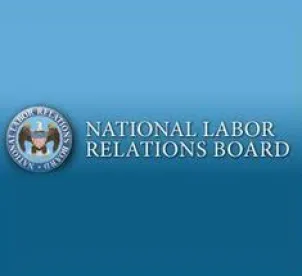The legal saga of the National Labor Relations Board’s (NLRB) new election rule took another turn on July 1 when a federal judge found the rule was a proper exercise of statutory interpretation.*
The entire new rule was scheduled to go into effect on May 31, but U.S. District Court Judge Ketanji Brown Jackson issued an 11th hour abbreviated Order on May 30 in a challenge by the AFL-CIO invalidating parts of the rule. The parts that were not invalidated went into effect on May 31.
The NLRB promulgated the new rule using an expedited method, as opposed to under the Administrative Procedures Act (APA), a time-consuming process that involves providing advance notice to the public and a comment period. The Judge held that the invalidated parts of the new election rule should have been subject to the full APA notice-and-comment procedure, and thus, could not go into effect.
The Court followed up with a fuller explanation in a Memorandum Opinion on June 7. In her May 30 order, the Judge had addressed only one count of the AFL-CIO’s suit, granting the union summary judgment. There were three other counts, seeking to overturn the entire new rule. The AFL-CIO argued (among other things) that the rule in its entirety was “arbitrary and capricious” – contending that it was not based on reason or facts, but was simply a rejection of the existing procedures. The Judge’s May 30 and June 7 rulings did not involve these other counts because she interpreted the AFL-CIO’s complaint to say that if the Court granted summary judgment on the one count, there was no need for her to rule on the remaining three.
The AFL-CIO asked the Court to reconsider, saying the Judge had misinterpreted their pleadings, and she should have ruled on all the counts.
Judge Jackson agreed. On July 1, 2020, she issued an additional decision, granting summary judgment to the NLRB on the remaining three counts. The Judge explained that the Court cannot substitute its judgment for that of the NLRB. However, the NLRB “must show that there are good reasons for the new policy” and not “simply disregard facts” underlying the prior rules “without offering a reasoned explanation.” The Court found the NLRB met this standard. In sum, the NLRB assessed the facts underlying the prior rule, but now considered how the prior election procedures addressed “certainty and finality, uniformity and transparency, [and] fair and accurate voting” in Board elections. These are policy considerations which are properly within the NLRB’s discretion.
Judge Jackson also rejected the AFL-CIO’s contention that the NLRB had no authority to impound ballots and delay a vote count until any pending reviews of a pre-election ruling were resolved. The Judge said the NLRB’s rule did not contradict the statute, but was a proper exercise of statutory interpretation.
It is not known if the AFL-CIO plans to appeal. The NLRB has stated it intends to appeal the Court’s May 30th ruling.






 />i
/>i
